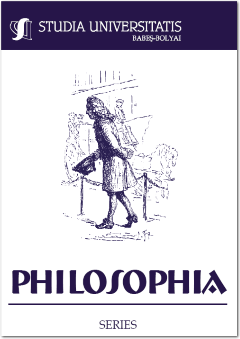MEANING IN LIFE AND SOURCES OF MEANING, DEPRESSION AND QUALITY OF LIFE IN PATIENTS ON HEMODIALYSIS
MEANING IN LIFE AND SOURCES OF MEANING, DEPRESSION AND QUALITY OF LIFE IN PATIENTS ON HEMODIALYSIS
Author(s): Camelia Soponaru, Diana Muraru, Magdalena IorgaSubject(s): Philosophy
Published by: Studia Universitatis Babes-Bolyai
Keywords: meaning in life; haemodialysis; patient; quality of life; depression; coping behaviour.
Summary/Abstract: Meaning in Life and Sources of Meaning, Depression and Quality of Life in Patients on Haemodialysis. Objectives: The study aims to emphasize the connections between meaning in life, sources of meaning profiles, depression and quality of life in patients on haemodialysis (HD), as well as the hierarchy of sources of meaning in life of HD patients. Material and methods: The research was conducted on 70 HD patients (M = 54.55 ± 11.70). The instruments used were the Meaning in Life Questionnaire, Sources of Meaning Profile-Revised, Short Form 36 Health Survey Questionnaire and Beck's Depression Inventory. The data were processed using SPSS 17.00. Results: Negative correlations were identified between depression and the following variables: quality of life (r = - 0.490, p < 0,001), physical health (r = - 0.373, p = 0.001) and mental health (r = - 0.531, p < 0.001); collectivism (r = - 0.296, p = 0.013). A positive correlation was identified between individualism and physical health (r = 0.337, p = 0.004). Satisfying one's daily needs, engaging in personal relationships and one's relationship with nature are the most representative sources of meaning in life of HD patients. The results emphasize that HD patients with a high level of depression have significantly lower quality of life (p = 0.009) compared to patients with low and moderate values of depression. Conclusion: The results of this research highlight the fact that low scores of depression increase quality of life in HD patients, while meaning in life, gender and the environment are not influential. Although specific to the subjects who were part of the research lot, the results obtained can enrich scientific literature and trace future research directions.
Journal: Studia Universitatis Babes-Bolyai - Philosophia
- Issue Year: 61/2016
- Issue No: 3
- Page Range: 59-67
- Page Count: 9
- Language: English

